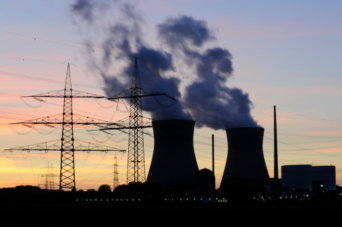- About
- Topics
- Picks
- Audio
- Story
- In-Depth
- Opinion
- News
- Donate
- Signup for our newsletterOur Editors' Best Picks.Send
Read, Debate: Engage.
The Paris treaty that seeks to combat climate change came into effect last week, a year on from a historic summit held in the French capital. So far ratified by over 100 countries, the global treaty aims to hold the increase of global temperatures below 2ºC above pre-industrial levels. Furthermore, the agreement aims to achieve net-zero emissions within the second half of this century.
However, in the past year few countries shown real commitment to the goal despite signing the international treaty, which large emitters such as Russia, Australia or Japan have not even done. Besides the reduction of greenhouse-gas emissions, the development of alternative energy sources and food production are among the agreement´s objectives. Unfortunately, few national governments have shown any effort in their pursuit of these targets.
The lack of governmental willingness is exemplified by the UK. Last week environmental lawyers from the NGO ClientEarth won a legal battle against the British Government in a case over harmful air pollution levels. For the second time in two years, the High Court in London ruled that Westminster has not done enough to clean up air pollution, considering the measures adopted to reduce the levels of nitrogen dioxide as too weak. The Big Smoke, duly named for the infamous smog that surrounded the capital during the Victorian era, is stilled plagued by poor air quality, which today causes the premature death to up to 10,000 Londoners per year.
This week a new global climate summit takes place in Marrakech, Morroco, where more than 200 countries will try to outline the implementation of the Paris treaty. Stronger and more substantial measures are hoped for, forcing significant reductions in the emission of greenhouse gases, and paving the way for truly sustainable development.
